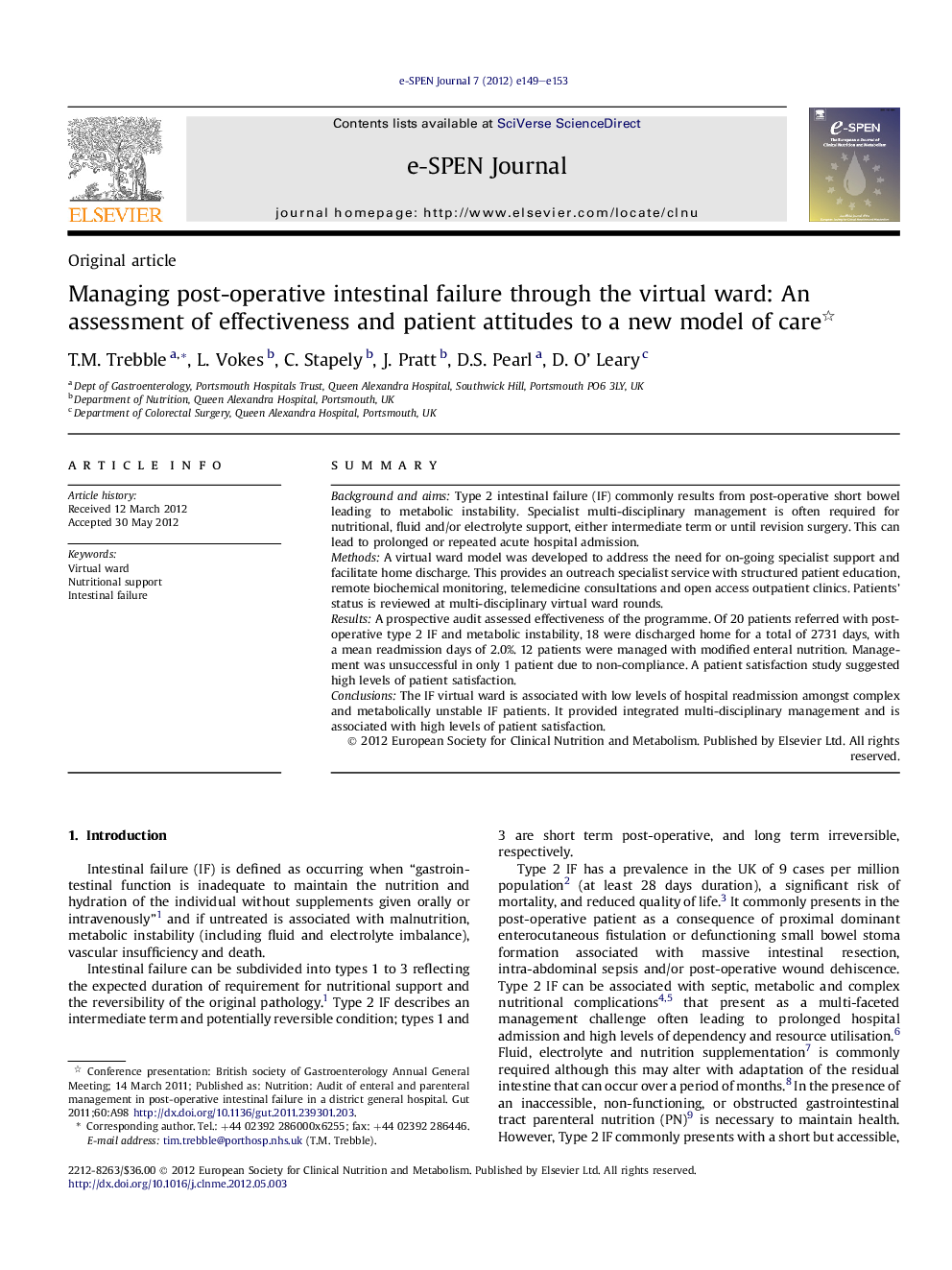| Article ID | Journal | Published Year | Pages | File Type |
|---|---|---|---|---|
| 2690132 | e-SPEN Journal | 2012 | 5 Pages |
SummaryBackground and aimsType 2 intestinal failure (IF) commonly results from post-operative short bowel leading to metabolic instability. Specialist multi-disciplinary management is often required for nutritional, fluid and/or electrolyte support, either intermediate term or until revision surgery. This can lead to prolonged or repeated acute hospital admission.MethodsA virtual ward model was developed to address the need for on-going specialist support and facilitate home discharge. This provides an outreach specialist service with structured patient education, remote biochemical monitoring, telemedicine consultations and open access outpatient clinics. Patients' status is reviewed at multi-disciplinary virtual ward rounds.ResultsA prospective audit assessed effectiveness of the programme. Of 20 patients referred with post-operative type 2 IF and metabolic instability, 18 were discharged home for a total of 2731 days, with a mean readmission days of 2.0%. 12 patients were managed with modified enteral nutrition. Management was unsuccessful in only 1 patient due to non-compliance. A patient satisfaction study suggested high levels of patient satisfaction.ConclusionsThe IF virtual ward is associated with low levels of hospital readmission amongst complex and metabolically unstable IF patients. It provided integrated multi-disciplinary management and is associated with high levels of patient satisfaction.
